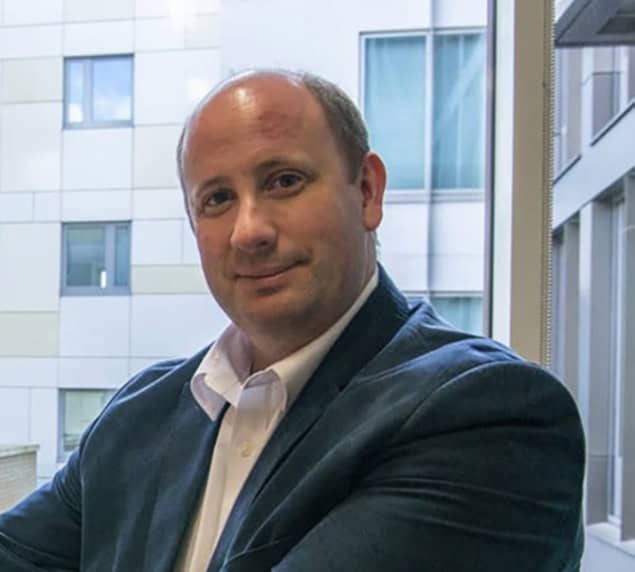Daniel Hook is chief executive of Digital Science, a co-founder of the research-information management provider Symplectic, and of the Research on Research Institute (RoRI). A theoretical physicist by training, he still does research in his spare time, with visiting positions at Imperial College London and Washington University in St Louis.

What skills do you use every day in your job?
As the chief executive officer (CEO) of Digital Science – a company that improves the information and software tools for all stakeholders in the research ecosystem – I use a variety of skills every day. Many of these are exactly what most people would expect: managing people, reading financial statements – all the usual CEO activities. Thankfully for all concerned, I don’t programme anymore. It’s more than a decade since my code was in a production environment.
However, perhaps surprisingly to some, I do a lot of data analysis. Digital Science’s core strength is our passion for understanding the research world as a route to offering better tools. For me, that means looking at what research is trending, understanding collaboration patterns, and gaining insight into how the scholarly record is changing. Not only are the data completely fascinating, but they are also the start of so many interesting discussions.
What do you like best and least about your job?
Let’s start with what I like least – which is travel, specifically the jet lag. While I do love spending time in different cultures, meeting people and seeing the beautiful nature and architecture in the places that I’m fortunate to visit, I find the jet lag to be very difficult and I’m constantly worried about my carbon footprint.
Last year I managed to do almost every trip in Europe by train and felt very good about it. But trips to Australia, New Zealand, Japan and the US still managed to make their way into my diary. This is somewhere I’m hoping that hybrid meetings find their feet soon.
As for what I like best about my job – that’s easy. Not only do I work with the most talented, kindest and most passionate team, but we also serve those who are the positive agents of change in our world.
What do you know today that you wish you knew when you were starting out in your career?
Like many people who started off working toward a research career, I defined my success very narrowly – specifically, in terms of being successful in a classically defined research setting. However, the skills that I learned as a researcher are all generally applicable and helpful skills in any walk of life.
Standing on the shoulders of programmers: the power of free and open-source software
They include having an entrepreneurial spirit, a willingness to try to solve a problem, the capacity to work hard and focus on that problem, and not give up when you don’t find a solution with the first approach that you take. Success looks different for everyone and the problems that we contribute to solving, in any context, have the capacity to make people’s lives better.
So, sometimes it’s not good to “buy in” to what we’re so often taught success should look like.




